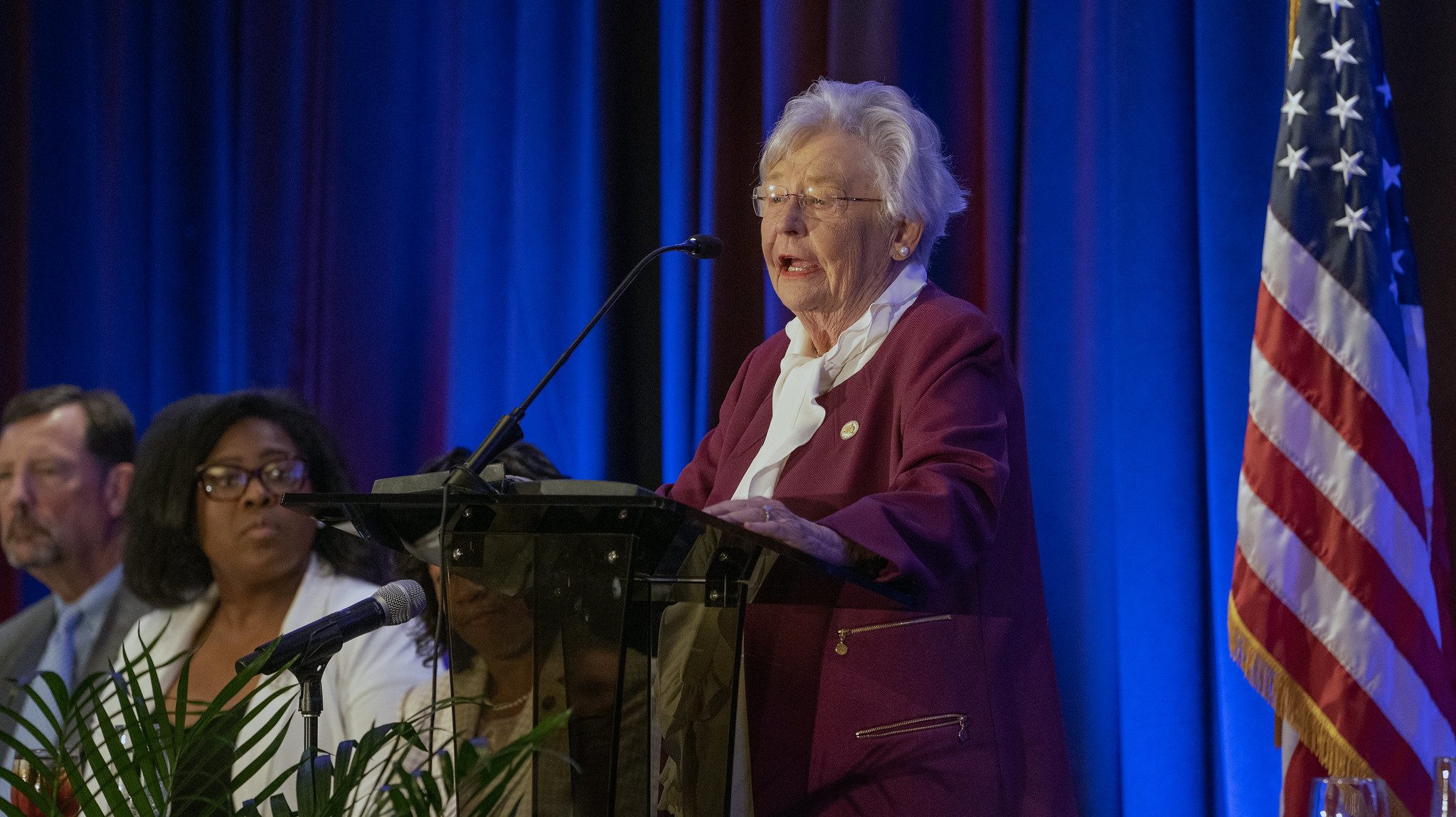|
Getting your Trinity Audio player ready...
|
Gov. Kay Ivey sent a letter Wednesday to Dr. Nancy Pack, director of the Alabama Public Library Service, suggesting rule changes for libraries to receive state aid as a response to concerns raised about library content.
In the letter, Ivey said she was not convinced by Pack’s response to her concerns that libraries are not doing enough to protect children from “inappropriate materials.”
“In my view, the common-sense approach would be to require local libraries to adopt their own policies governing the location and promotion of content that they deem inappropriate for children,” Ivey wrote to Pack. “Yet your submission makes clear that it is currently up to parents alone —with no support from libraries—to prevent their children from being exposed to these materials.
“To be clear I agree that parents bear the ultimate responsibility for for supervising their children’s reading material. But the question here goes beyond that: What can do to support parents in helping their children avoid harmful materials?”
The question wasn’t rhetorical—Ivey made suggestions for the APLS to consider implementing. The rules particularly relate to requiring libraries to submit policies “covering (a) ‘physical location (and relocation) of material deemed inappropriate for children or youth’ and (b) ‘advance approval of materials recommended, displayed, or otherwise actively promoted by library staff.'”
“Taking this action will leave the precise details up to local library boards,” Ivey said. “But it will ensure that every public library in the State newly considers these important ways to create a welcoming library environment.”
APR reached out to Pack for comment, but she was out of office.
Read Freely Alabama, a group that has formed in opposition to recent book challenges, sent a response letter to Ivey Wednesday afternoon expressing concern about Ivey referring multiple times to “harmful materials” or “inappropriate materials” without clearly defining what those terms would include.
“We would also like to emphasize that Clean Up Alabama and Moms for Liberty, the two primary groups responsible for the recent onslaught of book challenges, have explicitly stated their objection to any book with LGBT-affirming themes or images, even if the book in question has no sexually explicit content,” the group wrote in response to Ive. “Thus, we are greatly concerned about Governor Ivey’s usage of the vague and imprecise phrase: “other materials deemed harmful.
“Read Freely Alabama asks, by whose standard will the state measure the harmfulness of a book?”
In addition to the above rule changes, Ivey also suggested that any expenditure of public funds to the American Library Association must be approved by a library board in an open, public meeting with advance public notice.
“I am entirely sympathetic to calls to disaffiliate our Alabama libraries from the ALA,” Ivey wrote. “At the same time, however, I recognize that the disaffiliation question requires a careful balancing between the ALA’s clear shortcomings and whatever advantages it may offer Alabama libraries in ways that do not facilitate the exposure of children and youth to harmful content. Especially because the policy changes I recommend will address the most pressing current problems, I believe the appropriate entity to perform this cost-benefit analysis is the relevant library board, in the first instance, and the Alabama Legislature, if necessary.
“Taking these actions will allow public libraries to continue to access useful resources on a case-by-case basis while ensuring greater input by the taxpayers who fund them.”
Ivey also suggested a rule change, and a preceding memo, that the APLS rule preventing discrimination on the basis of age does not apply to relocating books deemed inappropriate for children.
“Exercising discretion in the location of sexually explicit material or other material deemed by the public library board to be inappropriate for children or youth does not constitute a denial of service on the basis of age,” Ivey’s rule suggestion reads. “Taking age into account when recommending, displaying, or otherwise actively promoting library materials does not constitute a denial of service on the basis of age.”




















































